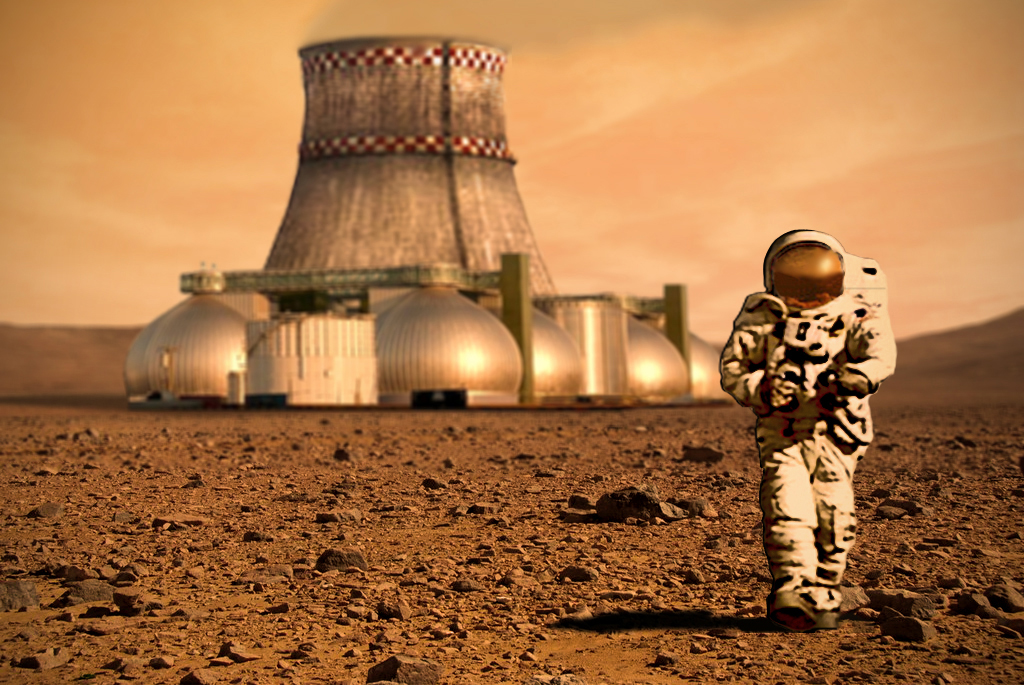The Colonization of Mars: How Would It Work Economically?
April 21, 2023
Over the past few years, talk about colonizing Mars has escalated as a result of the development and advances in the aerospace industry. Prominent figures in this industry—including Elon Musk, Jeff Bezos, Richard Branson, among others—-strive to make the expansion into space a reality. However, how feasible is this envisionment in an economic sense?
In order to colonize Mars, a myriad of different factors needs to be assessed. Although massively neglected, economic aspects must be regarded in order to fulfill this ambitious objective. Considering Elon Musk’s target of colonizing one million people on Mars, this is most likely not enough people to support a prosperous, modern economy similar to what we have today. An article from Equitablegrowth.org states: “Or, to put it another way: colonizing Mars might well be practical, but only if we can start out by plonking a hundred million people down there.” To back up this claim, the premise of international trade would not function on Mars with a low amount of people as stated in Elon Musk’s goal. This is because, in today’s world, th e economies of scale—cost advantages that occur when production increases and the cost per unit decreases, boosting profit—is what allows for production costs to be so low and for the entire world able to be supplied sufficiently. In turn, this process of international trade propels the world to make numerous advancements and create the modern technology that we have. However, if only one million people were to be on a planet, this system of international trade that makes the global economy so efficient would not be able to be implemented due to the lack of people. Consequently, the enduring levels of our technologically advanced civilization would not be able to be maintained on Mars.
e economies of scale—cost advantages that occur when production increases and the cost per unit decreases, boosting profit—is what allows for production costs to be so low and for the entire world able to be supplied sufficiently. In turn, this process of international trade propels the world to make numerous advancements and create the modern technology that we have. However, if only one million people were to be on a planet, this system of international trade that makes the global economy so efficient would not be able to be implemented due to the lack of people. Consequently, the enduring levels of our technologically advanced civilization would not be able to be maintained on Mars.
The other issue that arises in the colonization of Mars and the establishment of an economy there is the speed and ease of travel. The planet Mars is 90.385 million miles away. With the technology we have now, NASA estimates that it would take about seven months to fly to Mars. With that being said, initiating an economy there would take a vast amount of time in order to provide the inhabitants with all the necessary resources, let alone actually flying the inhabitants to Mars.
![]()
Besides the time it takes to install this colony, the amount of money spent on it may become counterproductive to the notion of establishing an economy on Mars.
Innumerable amounts of money would be allocated towards the whole production just to establish a separate economy on Mars, whereas the same amount of money could be spent on developing the already existing world economy.
Nonetheless, I still believe that an economy can be established on Mars. However, this process would be gradual and would take plenty of time. In this idea, a low number of people will be colonized on Mars and live off of farming and sustenance just like how the first inhabitants of Earth did when they lived here. They would then expand and evolve their methods of technology similar to what happened over the past 100s of years on Earth. In this way, much can be learned about the ecosystem, climate, geography, and essentially everything else needed to know about the planet Mars. This alternative is very deviating from Elon Musk’s plan to inhabit one million people on Mars by 2060, but would be a great opportunity to learn about a completely different planet which would hopefully help scientists in their future endeavors of space exploration.

Eventually, as technology advances and transportation to Mars becomes more effortless and expeditious, more and more people can be sent up to Mars and the economy will continue to modernize. As the economy continues to mature, it could be added as an entity within our economy, just like a singular country is in our economy right now so that its colony can trade and participate with Earth’s economy. This solution could be extremely useful to both the population of Earth and Mars as both benefit from each others’ resources and advancements. Instead of having two completely separate economies, the economy of Earth simply expands to Mars. However, this solution would require efficient and easy transportation between Earth and Mars.
Overall, this inhabitation of Mars is an ambitious goal that is near in our future, but baby steps must be taken so that all aspects are considered to prevent any problems that may emerge.
















































































































































